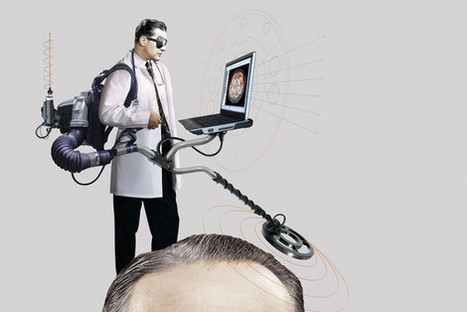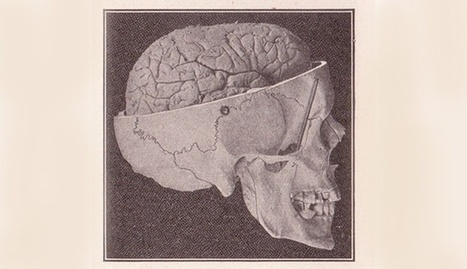Dr James Gupta looks at training from a neuroscience perspective.
Get Started for FREE
Sign up with Facebook Sign up with X
I don't have a Facebook or a X account

 Your new post is loading... Your new post is loading...
 Your new post is loading... Your new post is loading...

Kenneth Mikkelsen's curator insight,
May 6, 2017 5:23 AM
Most neuroscientists accept that the brain computes by modifying its synapses, the links between neurons. On this view, the brain learns because experience molds it, rather than because experience implants facts. But experience does implant facts. We all know this, because we retrieve and make use of them throughout the day.

The Learning Factor's curator insight,
January 10, 2017 4:55 PM
Do you feel like your attention span is shortening? Stretch and strengthen it with these steps.

John Michel's curator insight,
May 22, 2015 4:49 PM
Neuroscience, the study of the nervous system including the brain, is set to transform our understanding of how people respond to the world of work. If we can understand the brain better, then we can help organizations, leaders, and all employees work more efficiently and effectively. 
Tony Brugman (Bright & Company)'s curator insight,
June 18, 2015 8:46 AM
Interesting stuff on impact of neuroscientific way of learning on performance and coping with change.
A research amongst leaders from four large organisations showed "learning about how our brains work can help us manage ourselves and lead people through change in more effective ways. (Because) it provides important insights into how we respond to change, what makes it easier for us to cope with uncertainty, what helps us focus, what affects our motivation and openness to change." 
Gary Johnsen's curator insight,
June 21, 2015 9:12 AM
Good summary on the brain and change management David Rock

Ivan Mercado Lorberg's curator insight,
March 14, 2014 11:34 AM
¿Es posible "amar" o comprometerse con una marca en particular en un mundo tan poligámico como el de hoy enn día? Acá una respuesta Neurocientífica 
Mervi Rauhala's curator insight,
March 18, 2014 3:38 AM
Interesting study about how people "love "their favorite brands and icons even more than people. But there has to be a special story related to the product or brand, but but...The results could be also interpreted otherwise. Leaves lot of open questions.

Gary Faust's curator insight,
August 30, 2013 8:53 PM
In experience creativity seems to be volitional not physiological, now there is some science to counteract this socially accepted point of view. 
Regis Elo's comment,
September 18, 2013 7:01 PM
Sorry again for the delay.thankx for your comments. I add that it seems coherent to agree with both of you Kathy and Louise , inclueing the possibility to care about the individual self-consciousness and empathy as a specific human condition to be eternally unsatisfied WITHOUT SPIRITUALITY?....IT'S BEYOND! i guess

Karen Goldfarb Copywriter's curator insight,
May 3, 2013 1:18 PM
We are always trying to work out where the music or copywriting / story is heading, and enjoy the journey even if we're wrong. "There is pleasure even in being deceived." 
Mirjana Podvorac's curator insight,
May 4, 2013 2:08 PM
Some new research on some things teachers have known and used for a long time. |

shreya's comment,
April 12, 2019 1:38 AM
Razer Rapper LAPTOP STAND Spirit Blade Stealth Notebook Aluminum Base:https://www.newbecca.com/product/category/50038527

shreya's comment,
September 18, 2019 5:58 AM
taobao agent Running mobile phone arm bag men and women sports equipment fitness arm bag wrist bag Apple 7 arm with arm bag 6plus arm set https://www.yrbuy.com/china/243794/running-mobile-phone-arm-bag-men-and-women.html

The Learning Factor's curator insight,
June 21, 2017 7:07 PM
The design of your meeting might be more important than the content you plan to discuss.

The Learning Factor's curator insight,
January 22, 2017 5:15 PM
Is it possible to train your brain to cope with an ever more fast-paced world? In some cases, more tech might save us from tech overload. 
Ralston Baldeagle's curator insight,
January 22, 2017 11:35 PM
Well, adapting in a world full of technology is a bit hard but breaking loose from the hole will take a while. The pros of make your brain proof of distractions is basically try new methods of improvement and having a healthy nutrition. The cons would basically be remaining stagnant and not changing.

The Learning Factor's curator insight,
November 27, 2016 4:29 PM
Learning is no longer something we just do in schools. 
Gisele HELOU's curator insight,
November 28, 2016 3:23 AM
Learning is no longer something we just do in schools.

Insight Narrator's curator insight,
August 29, 2016 4:54 AM
There is a lot out there on the neuroscience of storytelling. Here's another terrific article that share more about the topic. What I particularly like is the author's discussion of the future of storytelling based on our current addiction to screen time, and some of the opportunities virtual reality storytelling bring.
It's an interesting read. What do you think of the narrative future proposed?
This review was written by Karen Dietz for her curated content on business storytelling at www.scoop.it/t/just-story-it. Follow her on Twitter @kdietz

Des Kirby's curator insight,
April 29, 2014 7:56 AM
"We often think a deadline can help us shake off inertia and focus on getting a job done. But the brain research suggests precisely the opposite is true. A deadline, instead, more often limits our thinking and can lead to much worse decision making." 
Lisa McCarthy's curator insight,
April 29, 2014 11:35 AM
Most of us assume that when we try to solve problems, we're drawing on the logical parts of our brains. But, in fact, great strategists seem to draw on the emotional and intuitive parts of their brain much more. 
Tony Brugman (Bright & Company)'s curator insight,
June 24, 2014 4:06 PM
Good WSJ article on leadership and decision-making: "Take much of what you know about how executives make decisions. Now, forget it." New brain research shows most of what we thought we know about executive decision making is wrong

David McGavock's curator insight,
October 25, 2013 10:41 AM
"Hanson’s book (a sort of self-help manual grounded in research on learning and brain structure) doesn’t suggest that we avoid dwelling on negative experiences altogether—that would be impossible. Instead, he advocates training our brains to appreciate positive experiences when we do have them, by taking the time to focus on them and install them in the brain." It is easy to forget how good we have it rather than watching for the next shoe to fall. Rick Hanson posits that that is due to the way we are wired; a necessity for survival. |



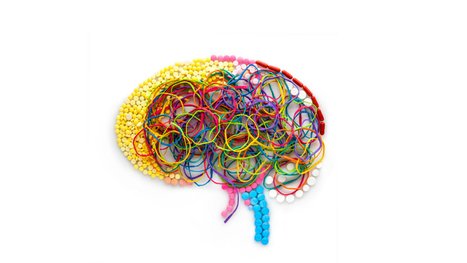

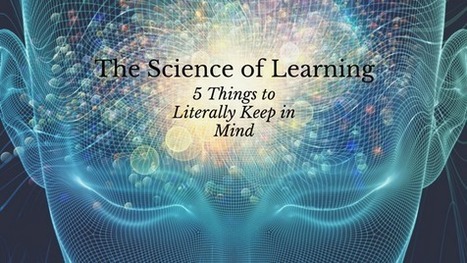
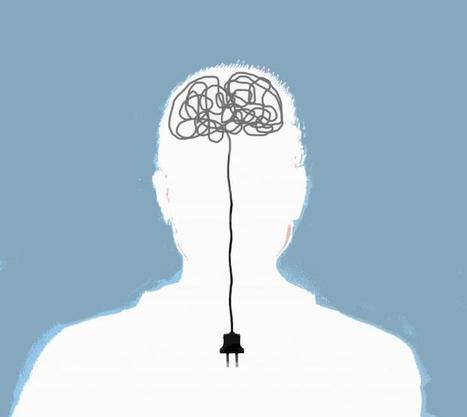






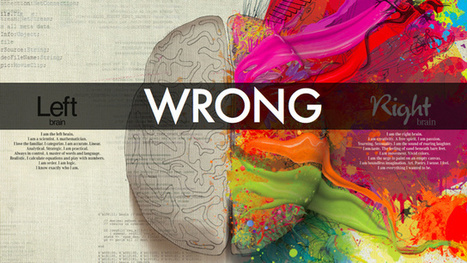

![Why your brain loves music [& stories] | #HR #RRHH Making love and making personal #branding #leadership | Scoop.it](https://img.scoop.it/1s0_n5UN1fAbA9RPeU1pFzl72eJkfbmt4t8yenImKBVvK0kTmF0xjctABnaLJIm9)









